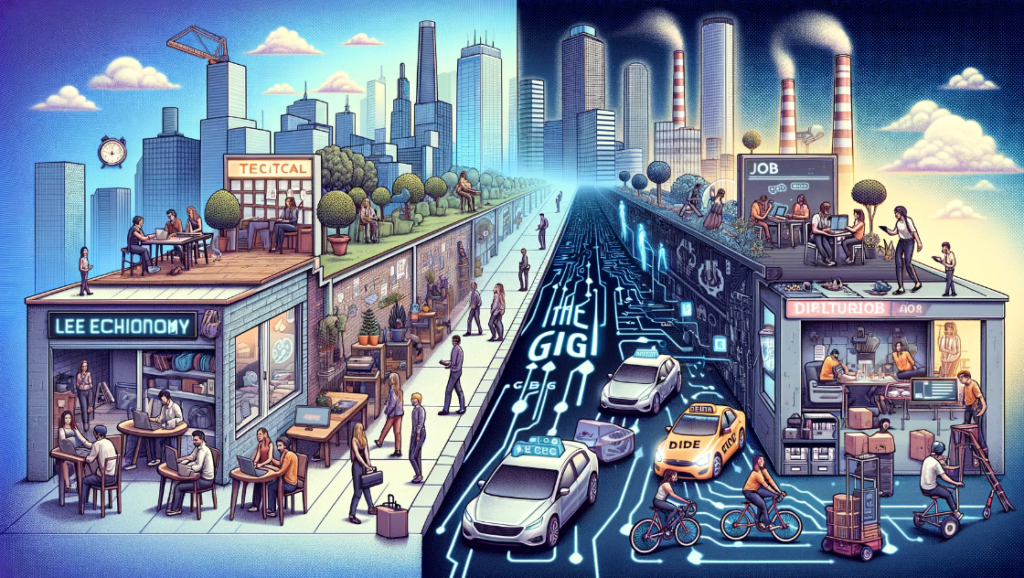Lesson 27. The Gig Economy (ギグエコノミー)

▮ Explanatory Text:
The gig economy refers to a labor market characterized by the prevalence of short-term contracts or freelance work, as opposed to permanent jobs. It is driven by the digital transformation that connects workers with clients or customers through online platforms for various services, including transportation, food delivery, and freelance projects. While the gig economy offers flexibility and independence for workers, it also raises concerns about job security, benefits, and labor rights. This topic explores the rise of the gig economy, its impact on the workforce and society, and the debate over the need for regulatory changes to ensure fair working conditions.
▮ Common Phrases:
1. Freelance work provides…
2. Platform-based employment is characterized by…
3. The flexibility of gig work allows for…
4. Concerns about the gig economy include…
5. Regulatory measures could address…
▮ Example Sentences:
1. Freelance work provides individuals with the opportunity to choose projects that match their skills and interests.
2. Platform-based employment is characterized by the use of digital platforms to connect workers with short-term jobs.
3. The flexibility of gig work allows for greater control over work schedules but lacks traditional employment benefits.
4. Concerns about the gig economy include the absence of job security and access to health insurance and retirement plans.
5. Regulatory measures could address issues of worker classification and ensure minimum wage standards for gig workers.
▮ Questions:
1. What are the advantages and disadvantages of the gig economy for workers?
This question encourages learners to discuss the benefits of flexibility and autonomy in gig work, as well as the challenges related to job security and benefits.
2. How does the gig economy impact traditional industries and employment relationships?
Participants explore the effects of the gig economy on conventional business models and the employer-employee relationship.
3. What role do digital platforms play in the growth of the gig economy, and how do they influence labor markets?
This prompts a discussion on the function of digital platforms in facilitating gig work and their impact on labor market dynamics.
4. How can policymakers balance the need for flexibility in the gig economy with protections for workers?
Learners examine potential regulatory approaches to protect gig workers while maintaining the flexibility that characterizes gig work.
5. Discuss the future of work in the context of the gig economy’s expansion. How might labor markets evolve?
This question invites speculation on the long-term implications of the gig economy for the workforce and how labor markets may adapt.
▮ Discussion Instructions:
Choose a specific aspect of the gig economy that interests you, such as its impact on a particular industry or the challenges faced by gig workers. Discuss the current state of this aspect, including any benefits it offers and problems it presents. Reflect on potential solutions or future developments that could address these issues, considering the perspectives of workers, companies, and policymakers.







